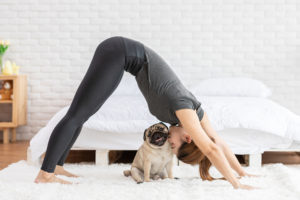
According to researchers at the University of Bath, keeping up with regular, daily exercise can play an important role in helping to maintain a healthy immune system. The study published in the international journal Exercise Immunology Review involved leading physiologist’s Dr. James Turner and Dr. John Campbell from the University of Bath’s Department for Health and considered the effect of exercise on immune function.
It was found that in the short term, exercise can help to boost immunity and suppress pathogens. And in the long term, it can slow down changes that happen to the immune system with aging, therefore reducing the risk of infection.
Will Not Suppress Immune System
Dr. Turner explains: “Our work has concluded that there is very limited evidence for exercise directly increasing the risk of becoming infected with viruses. In the context of coronavirus and the conditions we find ourselves in today, the most important consideration is reducing your exposure from other people who may be carrying the virus. But people should not overlook the importance of staying fit, active, and healthy during this period. Provided it is carried out in isolation — away from others — then regular, daily exercise will help better maintain the way the immune system works — not suppress it.”
Co-author Dr. John Campbell added: “People should not fear that their immune system will be suppressed by exercise placing them at increased risk of Coronavirus. Provided exercise is carried out according to the latest government guidance on social distancing, regular exercise will have a tremendously positive effect on our health and wellbeing, both today and for the future.”
Regular moderate-intensity exercise can include walking, running, or cycling. The aim is to achieve 150 minutes per week of aerobic exercise. Resistance exercise has also shown clear benefits for maintaining muscles, which also helps movement. Researchers also add a reminder for those exercising to practice good personal hygiene. They suggest thoroughly washing hands for 20 seconds under hot water after a workout session.
In particular, during this time when many people are under tremendous amounts of psychological stress, it is important to maintain regular aerobic exercise to give the body its best chance at fighting off infections. Try to keep active regularly and enjoy some time outdoors. It is important to get vitamin D, so walking, running, or cycling outside are some of the best exercises. In addition to staying fit, researchers suggest following a healthy diet and getting plenty of sleep.